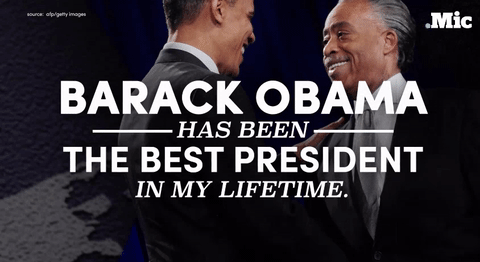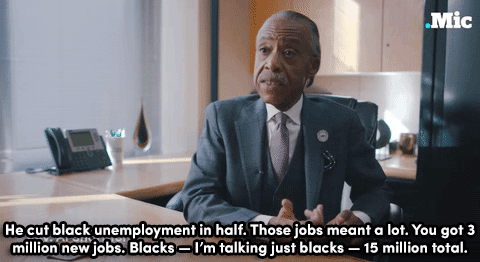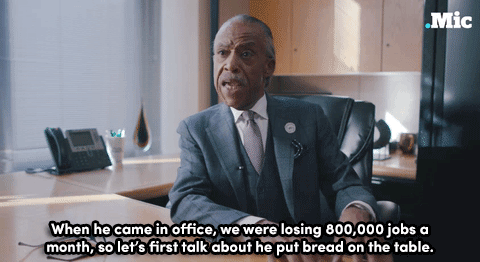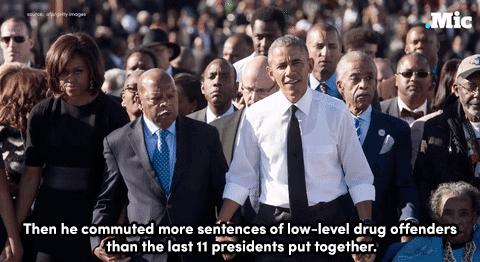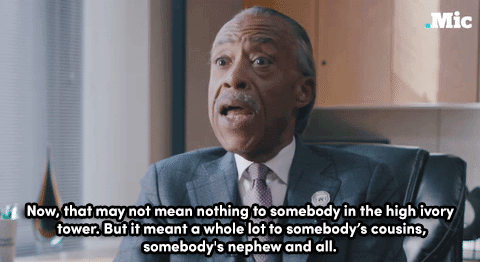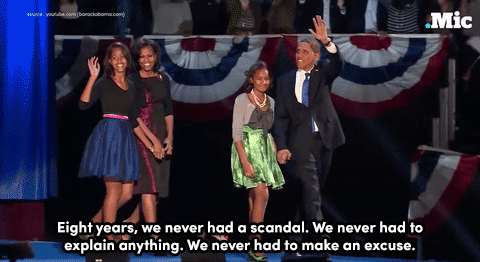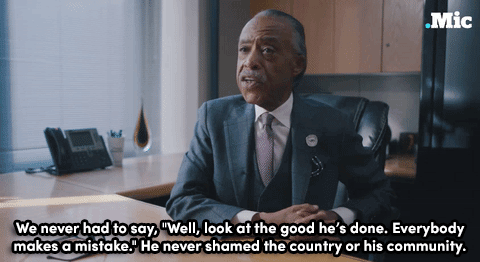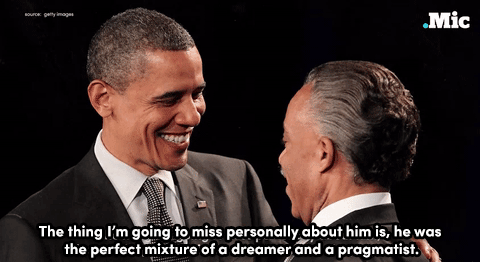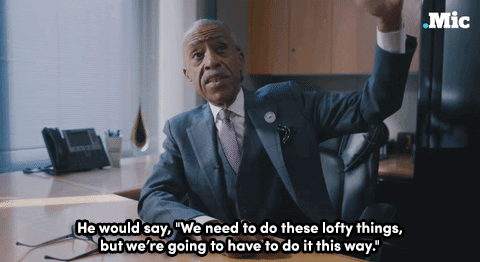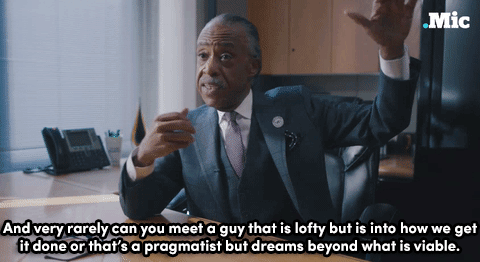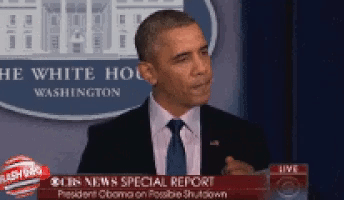Obama Lobbies Against Obliteration by Trump
WASHINGTON — YOU know how desperate President Obama is — as he contemplates all his accomplishments going down the drain at the hands of a man he has total contempt for — when he is willing to do something so against his nature.
He tried to persuade Donald Trump.
We saw that unicorn glimpsed only fleetingly in the last eight years: the cajoling Barack Obama.
The president flattered the president-elect by letting Trump rack up the ego arithmetic.
“This was a meeting that was going to last for maybe 10 or 15 minutes and we were just going to get to know each other,” Trump told reporters afterward, as they sat in front of the Oval Office fireplace. But, he marveled, “The meeting lasted for almost an hour and a half.”
And lo and behold, it worked — sort of. In his first post-election newspaper interview, Trump told The Wall Street Journal that he would consider leaving in place the parts of Obamacare that allow children to stay on their parents’ health plan until they are 26 and that prevent people from being refused insurance because of existing conditions.
“I told him I will look at his suggestions, and out of respect, I will do that,” Trump said.
Of course, those are two very popular elements of the law that Republicans wouldn’t dream of killing anyway. Still, President Obama’s charm and civility clearly made a strong impression, though it’s impossible to say when a nasty tweet will come in the middle of the night.
“I want a country that loves each other,” Trump told the paper. “I want to stress that.”
Harry Reid wasn’t in a kumbaya frame of mind, calling Trump “a sexual predator who lost the popular vote.”
Out of a hailstorm of unfathomable things during the week, one sticks out to me: How can it be that in the end, Barack Obama did not understand the Obama revolution?
He came away from that elated whoosh in 2008 not comprehending that many voters viewed him as the escape hatch from Clinton Inc. It never would have occurred to anyone then — even the Clintons — that President Obama would be the one to brush away any aversions and objections, take us by the elbow, and firmly steer us back to Clinton Inc.
Voters waited in line for hours at those early Obama rallies because they wanted thunderous change. They wanted a newcomer who didn’t look like the old dudes on our money, someone who would bust up the incestuous system and give us, as the poster said, hope.
But Obama lost touch with his revolutionary side and settled comfortably into being an Ivy League East Coast cerebral elitist who hung out with celebrities, lectured Congress and scorned the art of political persuasion.
He was cozy with Silicon Valley and dismissive of working-class voters anxious about globalization, shrugging that “We’re part of an interconnected global economy now, and there’s no going back from that.” He was dismissive of Americans anxious about terrorism after the Paris attacks, noting that you’d be more likely to die from a bathtub fall.
He was dismissive of Bernie Sanders and his voters, treating Sanders as a fairy tale, just as Bill Clinton treated him in 2008 when he was a senator with little record but with an army of passionate supporters who wanted to upend moldy politics.
Nudging Sanders and Joe Biden toward the exit, Obama was the ultimate establishmentarian. As he told the Rutgers student paper in May, “We have to make incremental changes where we can, and every once in a while you’ll get a breakthrough and make the kind of big changes that are necessary.”
The man who swept into the White House in a boisterous rebellion was dismissive of the boisterous rebellions in both the Democratic and Republican Parties. He insisted that an incrementalist and fellow Ivy League East Coast cerebral elitist who hangs out with celebrities would be best to save his legacy.
Even Michelle, who understands the importance of the visceral in politics better than her husband and who said in 2007 that the bid to usurp Hillary was about “our souls,” tamped down hope. “Remember, it’s not about voting for the perfect candidate,” she told a crowd at La Salle University. “There is no such person.”
The leaked John Podesta emails showed how deluded the campaign was about the insurgent mood of the voters.
In January 2015, Hillary’s communications director, Jennifer Palmieri, advised Podesta: “Make a virtue of her longevity. Embrace all the Clinton-ness — the forty years in politics, the decades on the national stage.”
As late as February, Hillary’s chief strategist, Joel Benenson, was fretting that the candidate had no vision or message compared to Sanders: “Do we have any sense from her what she believes or wants her core message to be?”
As she cuddled up to Wall Street, Hillary forgot about the forgotten man — and woman. Bill complained in meetings that campaign manager Robby Mook was ignoring white working-class voters, according to Politico, but his concern was waved off as the plea of “a talented but aging politician who simply refused to accept the new Democratic map.”
They should have listened. Bill ousted the first President Bush by focusing on “you” rather than “I,” what the voters wanted. Hillary’s campaign message boiled down to “It’s my turn, dammit.”
President Obama, trying to hoist Hillary over the finish line, offered a solipsistic message, saying it would be “a personal insult” if African-Americans did not vote for Hillary, and an accusatory message, suggesting that sexism was stopping men from voting for Hillary.
In September, Hillary stumbled when she dismissed half of Trump supporters as a “basket of deplorables.” Tellingly, the snooty remarks were made at a high-dollar fund-raiser hosted by Barbra Streisand and other sparklies at Cipriani Wall Street.
Hillary should have spent less time collecting money on Wall Street and more time collecting votes in Wisconsin.
http://www.nytimes.com/2016/11/13/o...bbies-against-obliteration-by-trump.html?_r=0
WASHINGTON — YOU know how desperate President Obama is — as he contemplates all his accomplishments going down the drain at the hands of a man he has total contempt for — when he is willing to do something so against his nature.
He tried to persuade Donald Trump.
We saw that unicorn glimpsed only fleetingly in the last eight years: the cajoling Barack Obama.
The president flattered the president-elect by letting Trump rack up the ego arithmetic.
“This was a meeting that was going to last for maybe 10 or 15 minutes and we were just going to get to know each other,” Trump told reporters afterward, as they sat in front of the Oval Office fireplace. But, he marveled, “The meeting lasted for almost an hour and a half.”
And lo and behold, it worked — sort of. In his first post-election newspaper interview, Trump told The Wall Street Journal that he would consider leaving in place the parts of Obamacare that allow children to stay on their parents’ health plan until they are 26 and that prevent people from being refused insurance because of existing conditions.
“I told him I will look at his suggestions, and out of respect, I will do that,” Trump said.
Of course, those are two very popular elements of the law that Republicans wouldn’t dream of killing anyway. Still, President Obama’s charm and civility clearly made a strong impression, though it’s impossible to say when a nasty tweet will come in the middle of the night.
“I want a country that loves each other,” Trump told the paper. “I want to stress that.”
Harry Reid wasn’t in a kumbaya frame of mind, calling Trump “a sexual predator who lost the popular vote.”
Out of a hailstorm of unfathomable things during the week, one sticks out to me: How can it be that in the end, Barack Obama did not understand the Obama revolution?
He came away from that elated whoosh in 2008 not comprehending that many voters viewed him as the escape hatch from Clinton Inc. It never would have occurred to anyone then — even the Clintons — that President Obama would be the one to brush away any aversions and objections, take us by the elbow, and firmly steer us back to Clinton Inc.
Voters waited in line for hours at those early Obama rallies because they wanted thunderous change. They wanted a newcomer who didn’t look like the old dudes on our money, someone who would bust up the incestuous system and give us, as the poster said, hope.
But Obama lost touch with his revolutionary side and settled comfortably into being an Ivy League East Coast cerebral elitist who hung out with celebrities, lectured Congress and scorned the art of political persuasion.
He was cozy with Silicon Valley and dismissive of working-class voters anxious about globalization, shrugging that “We’re part of an interconnected global economy now, and there’s no going back from that.” He was dismissive of Americans anxious about terrorism after the Paris attacks, noting that you’d be more likely to die from a bathtub fall.
He was dismissive of Bernie Sanders and his voters, treating Sanders as a fairy tale, just as Bill Clinton treated him in 2008 when he was a senator with little record but with an army of passionate supporters who wanted to upend moldy politics.
Nudging Sanders and Joe Biden toward the exit, Obama was the ultimate establishmentarian. As he told the Rutgers student paper in May, “We have to make incremental changes where we can, and every once in a while you’ll get a breakthrough and make the kind of big changes that are necessary.”
The man who swept into the White House in a boisterous rebellion was dismissive of the boisterous rebellions in both the Democratic and Republican Parties. He insisted that an incrementalist and fellow Ivy League East Coast cerebral elitist who hangs out with celebrities would be best to save his legacy.
Even Michelle, who understands the importance of the visceral in politics better than her husband and who said in 2007 that the bid to usurp Hillary was about “our souls,” tamped down hope. “Remember, it’s not about voting for the perfect candidate,” she told a crowd at La Salle University. “There is no such person.”
The leaked John Podesta emails showed how deluded the campaign was about the insurgent mood of the voters.
In January 2015, Hillary’s communications director, Jennifer Palmieri, advised Podesta: “Make a virtue of her longevity. Embrace all the Clinton-ness — the forty years in politics, the decades on the national stage.”
As late as February, Hillary’s chief strategist, Joel Benenson, was fretting that the candidate had no vision or message compared to Sanders: “Do we have any sense from her what she believes or wants her core message to be?”
As she cuddled up to Wall Street, Hillary forgot about the forgotten man — and woman. Bill complained in meetings that campaign manager Robby Mook was ignoring white working-class voters, according to Politico, but his concern was waved off as the plea of “a talented but aging politician who simply refused to accept the new Democratic map.”
They should have listened. Bill ousted the first President Bush by focusing on “you” rather than “I,” what the voters wanted. Hillary’s campaign message boiled down to “It’s my turn, dammit.”
President Obama, trying to hoist Hillary over the finish line, offered a solipsistic message, saying it would be “a personal insult” if African-Americans did not vote for Hillary, and an accusatory message, suggesting that sexism was stopping men from voting for Hillary.
In September, Hillary stumbled when she dismissed half of Trump supporters as a “basket of deplorables.” Tellingly, the snooty remarks were made at a high-dollar fund-raiser hosted by Barbra Streisand and other sparklies at Cipriani Wall Street.
Hillary should have spent less time collecting money on Wall Street and more time collecting votes in Wisconsin.
http://www.nytimes.com/2016/11/13/o...bbies-against-obliteration-by-trump.html?_r=0



























